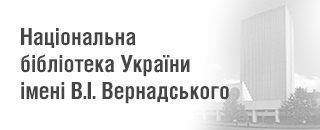GLOBAL EXPERIENCE OF COUNTING THE IMPACT OF HYBRID WARFARE ON NATIONAL AND ENERGY SECURITY AND ITS OBJECTS
DOI:
https://doi.org/10.31470/2786-6246-2024-9-142-150Keywords:
public administration, public policy, national security, energy security, social security, hybrid warfare, critical infrastructure, objects of increased danger, cyber attacks, NATOAbstract
It was revealed that the characteristics of the components of national security give reasons to insist on the importance of implementing a set of measures aimed at maintaining an adequate level of energy and social security functioning in the conditions of a hybrid war. This war has a negative impact on all countries of the world, including in Ukraine. It was revealed that due to the significant development of information and communication technologies and the growing dependence on them, a new sphere of confrontation has appeared, one of whose opponents is the Russian Federation, whose influence has a detrimental effect on the political and military functions of NATO in general and Ukraine in particular. It was found that the destructive influence of the Russian Federation on the energy sphere of Ukraine and NATO member states is manifested not only starting from 2022, its obvious consequences can be found as early as 2009 during the operation of energy infrastructure facilities in Germany and other countries. In addition, one can find an indirect Russian trace of influence on the energy security of various countries of the world (in particular, through Iran). It is emphasized that the ubiquity of digital connectivity, the ability to deny involvement in attacks, and the benefits of disrupting critical energy infrastructure through network-dependent operations have become a driving force in the evolution of Russian hybrid warfare. The situation in Ukraine is even more complicated by massive attacks by the aggressor state on domestic critical infrastructure facilities. This is done, including with the aim of destabilizing the development of Ukrainian society, increasing discontent, apathy, aggression, conflicts, etc. among it. On this basis, he insists on the dual role of domestic state bodies in opposing the undeclared war of the Russian Federation. International technical assistance, in particular NATO, can help in this. It is argued that NATO is in a unique position that allows the Alliance to strengthen the work of member states to address vulnerabilities and to generalize lessons learned in this area. It has been established that the Alliance faces the task of reaching the appropriate level of operational cooperation in order to deter potentially destructive hybrid attacks by the Russian Federation on the energy infrastructure and its recovery after them.
References
Dombrovska, S.M., Pomaza-Ponomarenko, A.L., Kryukov, O.I., & Poroka, S.G. (2024). Informatsiyni zahrozy ta komunikatyvna infrastruktura v derzhavnomu sektori [Information threats and communication infrastructure in the public sector]. NUCZU, Kharkiv [in Ukrainian].
Pomaza-Ponomarenko, A.L., & Novikov, V.O. (2023). Ways of transformation of institutional mechanisms of public administration in Ukraine: from informational threats to hybrid wars. Derzhavne budivnytstvo, 1 (33). Retrieved from https://periodicals.karazin.ua/db/article/view/22921 [in Ukrainian].
Pomaza-Ponomarenko, A.L., & Taraduda, D.V. (2024). Foreign experience of ensuring social security through the sustainable functioning of critical infrastructure objects and increased danger. Nauka i tekhnika sʹohodni, 4, 371–384 [in Ukrainian].
Pomaza-Ponomarenko, A.L., & Taraduda, D.V. (2024). Ensuring the stability of the system of state regulation of increased danger facilities and critical infrastructure facilities. Derzhavne upravlinnya: udoskonalennya ta rozvytok, 4. Retrieved from https://www.nayka.com.ua/index.php/dy/article/view/3461 [in Ukrainian].
Pomaza-Ponomarenko, A.L., &Taraduda, D.V. (2024). Mechanisms for ensuring civil security of Ukraine: aspects of emergency prevention at the facilities of the military-industrial complex. Publichne administruvannya ta natsionalʹna bezpeka, 3 (44). Retrieved from https://www.inter-nauka.com/issues/administration2024/3/9732 [in Ukrainian].
Dupuy, A.C., Nussbaum, D., Butrimas, V., & Granitsas, A. (2021). Energy Security in the Age of Hybrid Warfare. www.nato.int. Retrieved from https://www.nato.int/docu/review/ru/articles/2021/01/13/energeticheskaya-bezopasnost-v-epohu-gibridnoj-bor-by/index.html [in English].
Gogoreliani, A. (2021). Energy efficiency and renewable energy solutions in NATO and PfP countries’ military operations. www.enseccoe.org. Retrieved from https://www.enseccoe.org/publications/energy-efficiency-and-renewable-energy-solutions-in-nato-and-pfp-countries-military-operations/ [in English].
Higgins, A. (2014). Russian Money Suspected Behind Fracking Protests. The New York Times. Retrieved from https://www.nytimes.com/2014/12/01/world/russian-money-suspected-behind-fracking-protests.html [in English].
The official site of NATO (2020). Energy Security n the Era of Hybrid Warfare. www.sto.nato.int. Retrieved from https://www.sto.nato.int/Lists/STONewsArchive/displaynewsitem.aspx?ID=524 [in English].
Alliance for Securing Democracy (2019). Illicit Influence – Part Two – The Energy Weapon. securingdemocracy.gmfus.org. Retrieved from https://securingdemocracy.gmfus.org/illicit-influence-part-two-energy-weapon/ [in English].
Lyngaas, S. (2020). German intelligence agencies warn of Russian hacking threats to critical infrastructure. cyberscoop.com. Retrieved from https://cyberscoop.com/german-intelligence-memo-berserk-bear-critical-infrastructure/ [in English].
The official site of NATO (2020). NATO 2030: United for a new era. Analysis and Recommendations of the Reflaction Group Appointed by the NATO Secretary General. www.nato.int. Retrieved from https://www.nato.int/nato_static_fl2014/assets/pdf/2020/12/pdf/201201-Reflection-Group-Final-Report-Uni.pdf [in English].
Pomaza-Ponomarenko, A., Taraduda, D., Leonenko, N., Poroka, S., & Sukhachov, M. (2024). Ensuring the safety of citizens in times of war: aspects of the organization of civil defense. AD ALTA: Journal of Interdisciplinary Research, 14, 1, 216–220 [in English].
Slowik, J. (2019). CRASHOVERRIDE: Reassessing the 2016 Ukraine Electric Power Event as a Protection-Focused Attack. www.dragos.com. Retrieved from https://www.dragos.com/wp-content/uploads/CRASHOVERRIDE.pdf [in English].
The official site of U.S. Department of the treasury (2020). Treasury Sanctions Russian Government Research Institution Connected to the Triton Malware. home.treasury.gov. Retrieved from https://home.treasury.gov/news/press-releases/sm1162 [in English].




